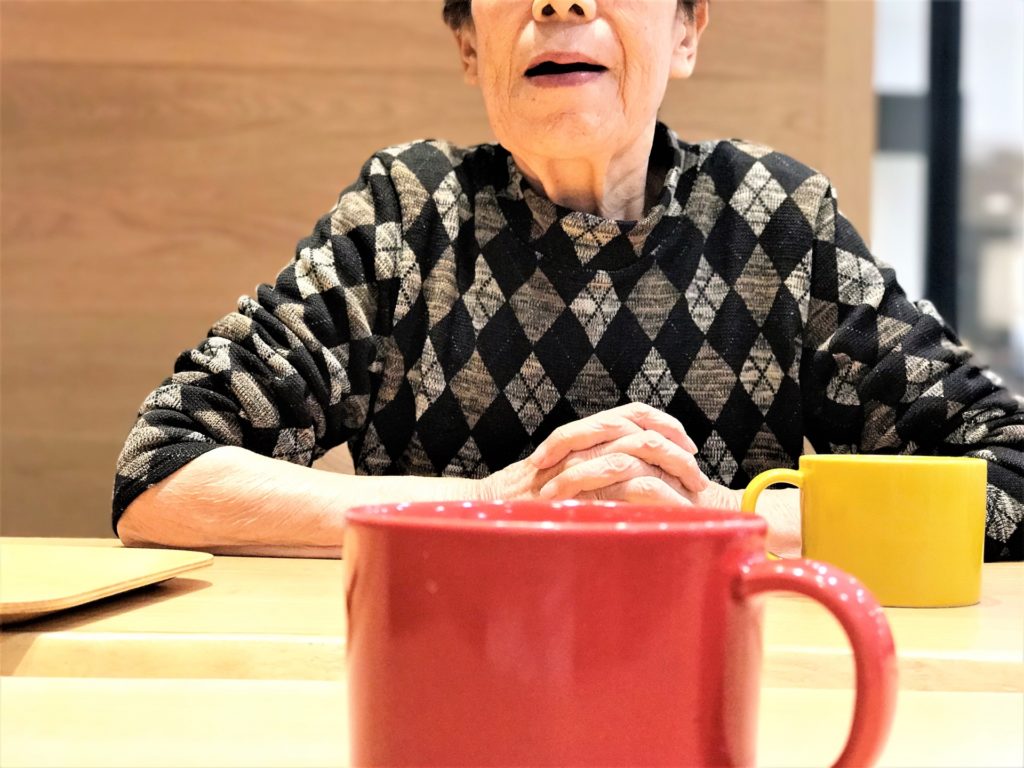Interviewing senior people makes us well prepared. When I conducted a one-on-one interview with a woman aged around 65, I had to be in the interview room much ahead of time. Then, I prepared my mind for good listening and good observation. “Your respondent is here. Are you ready?” A receptionist told me 10 minutes before the appointment time. When the woman sat down in the interview room, she politely bowed and gave me a prepared smile. In this way, we begin our interview with a senior woman.
Important, but Harder to Gain Insights
Interviewing senior women give us opportunities to explore and yield profound and rich insights into daily life. They have taken care of households: cooking, housekeeping, and raising children. They have managed the family’s finances by controlling the string of wallets, too. Their experiences today can also give us ideas about how our products and services should be for senior people. But, to understand senior people, we cannot use the same research methods used for young people. The chronological aging of senior people impacts their physical weakened and memory loss. Also, their attitudes and communication styles do not straightforwardly tell us their honest thoughts.
Conscious of Others
When we research senior women, several challenges make it difficult to understand their insights. One of them is their self-consciousness. Senior women tend to avoid giving negative feedback directly or soften the way of saying. In a group interview, they are careful about what they say. Although the interviewer encourages participants to speak frankly, the participants check the reactions of others all the time. Of course, we observe similar self-conscious behaviors among young Japanese, too. Compared to young people, however, senior people have attitudes of caring for others not to disrupt harmonies with others.
Holding Back and Self-Criticism
We sometimes observe that senior women hesitate to try new things. Some people try them, but give them up because they cannot see things clearly by long-sighted eyes and cannot manipulate objects with their weakened muscles. The increase in body immobility leads them to lower their self-confidence.
We also observe that some people blame themselves when they are not able to use new things. For example, when a senior woman could not follow a usage instruction of a product, she apologetically said: “I am sorry, I cannot use it with my ability,” instead of saying, “The usage instruction is bad.” Such a self-criticism makes it difficult for us to find out what improvements in products and services are necessary to make them usable. We need to deep dive into what drives their self-criticism when we listen to them, rather than just recording what they say.
Memory Decline
Another age-related issue is declining memory. Generally, senior people do not remember their experiences accurately as younger people do. For example, some people have problems telling product names that they used in the past year. Others fail to recall the names of TV commercial stars. When we conduct interviews, we must double-check what they said by using supplemental materials and ask the same questions differently or confirmatory questions.
How to Gain Insights – Visit, Listen and Observe
Then, what should we do? We can come up with creative ways to develop research techniques that are suitable for deep-dive insights of senior people. One of the useful approaches is ethnography: visiting them, and listening to their stories, and observing their environment. Although it is not easy to get the home visit opportunities, the home visit interviews give us rich insights of senior women about their lifestyles. For example, when we visited a woman aged 70 to interview her toilet goods, she hesitated to speak about them. But we soon discovered that the toilet goods perfectly fitted the layout of the house. During the interview, the woman recalled something. “Uh, wait a minute. I have something to show you.” She went to another room and came back with one item to tell us a story about her toilet goods.
Gaining consumer insights is not easy. But it is a fun experience for researchers, product designers, and business developers to hunt treasures in consumers.
